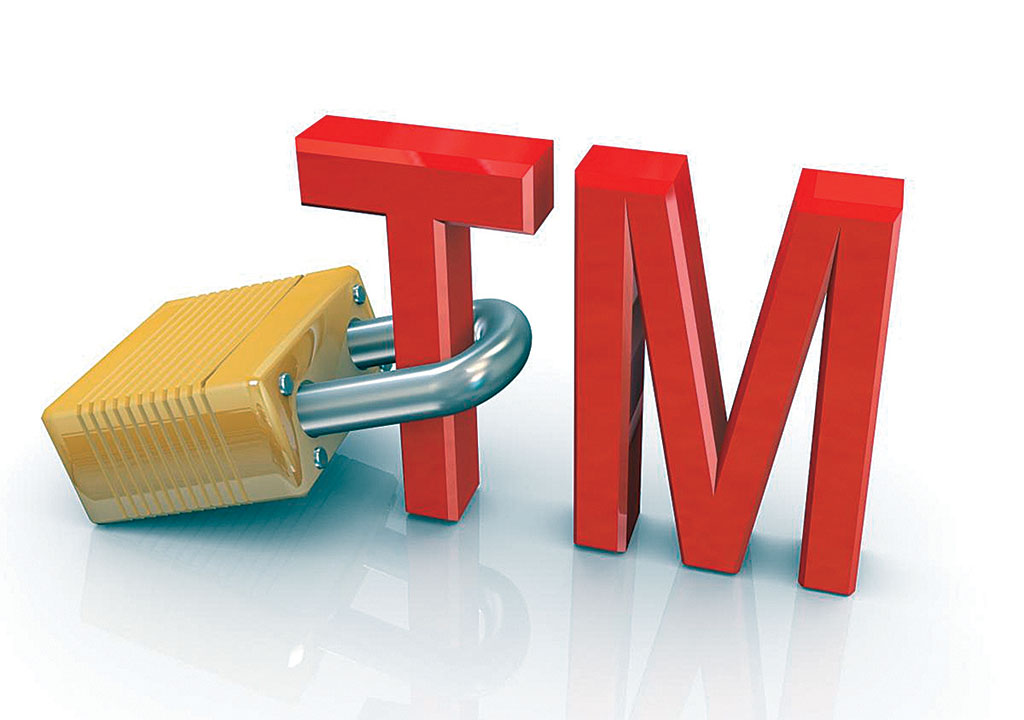
25 years since the last enactment of the Labour Act, a lot has changed in Nepal. Though we may not have developed or seen an unprecedented growth like our neighbours in the region, a new labour law has been long standing in the horizon. With innumerable discussions on the new draft from representatives from the private sector, the workers and the government, industrialists have had a many a draft pass back and forth. On September 4, 2017, on the accord of assent by the President, the new Labour Act 2074 was officially enacted, repealing the previous Labour Act of 2048. 25 years since the last enactment of the Labour Act, a lot has changed in Nepal. Though we may not have developed or seen an unprecedented growth like our neighbours in the region, a new labour law has been long standing in the horizon. With innumerable discussions on the new draft from representatives from the private sector, the workers and the government, industrialists have had a many a draft pass back and forth. On September 4, 2017, on the accord of assent by the President, the new Labour Act 2074 was officially enacted, repealing the previous Labour Act of 2048.
In the backdrop of 2048, this new Legislation significantly introduces a number of changes that effect all entities operating in Nepal. Though the Act does not apply to civil servants, army and police personnel, entities in the SEZ etc., the new act practically applies to all other businesses, more so, to a certain extent even to domestic helpers and interns in business. On this note, this article will highlight the major underlinings of the new Labour Act 2074.
Shikhar Pandit is a Cardiff University graduate who is currently a Managing Associate at Gandhi and Associates, a leading corporate law firm. He can be contacted via [email protected]
Who does it apply to
Unlike the previous act, which applied to entities with more than 10 employees, the new Labour Act applies to practically all organisations. “Enterprise” has been defined to include companies, firms, associations, organisations, NGO’s etc. but exclude civil servants, journalists (conditioned on their contract) and companies in SEZs.The Categorisation of Employment
Unlike the previous act, employees and their employment have been segregated into various categories dependent on the nature of their engagement:• Regular Employment• Work Based Employment• Time Bound Employment• Casual Employment (7 days or less in a month)• Part-Time Employment (35 hours of less in a week)Most significantly, the law now requires that all employers enter an employment agreement or provide an appointment letter to all its employees. Failure to do so could attract a hefty penalty of up to Rs. 500,000.Trainee
A significant addition is the provision of engaging someone as a trainee. Trainees may be engaged but for a maximum period of one year and during the period the trainees shall be eligible to the social security benefits (PF and Gratuity) and the minimum salary declared by the government. On the completion of one year though, the employer is not obliged to appoint the trainee as an employee, particularly, a regular Employee. Failure to abide by the law could attract a penalty of up to Rs. 10,000 per trainee.Working Hours and Probation Period
There is no significant change in the working hour requirements, but the permissible overtime has been increased from 20 hours to 24 hours per week. Overtime shall be payable at the rate of one and a half times the employees remuneration. The act also specifies the period within which employees are required to be remunerated eg. regular employees – payment period shall not exceed one month.Conversely, the probation period has been reduced to six months from the date of employment from the previous provision of 240 days (close to eight months).Special Provision for Women
There are a few additional provisions with respect to women:- Women shall be eligible for an extra public holiday on International Women’s Day
- Women shall be provided transportation to their place of residence if their working hours start or end before sunrise or after sunset.
- Maternity leave has been increased from 52 days previously to 14 weeks. 60 days of the period of maternity leave shall be with pay.
- Work during pregnancy. The employer is obliged to make arrangements so work delegated to the pregnant employee does not adversely impact her health.
Leave
There have been significant changes in the leave allowances to employees.- Unchanged: Weekly leave (one day per week), Public holidays (13 days/year, 14 days/year for women) and Mourning leave (13 days)• Removed: Special leave, which was an unpaid leave for a maximum of 30 days/year has been removed.
- Amended:
- Sick Leave: Increased from half pay for 15 days to full pay for 12 days. All employees are eligible to sick leave on a pro-rated basis if they have been appointed for less than one year.
- Maternity Leave: Increased from 52 days (full pay) to 14 weeks (full pay for 60 days)◦ Accumulation of Leaves: Home leaves may now be accumulated to a maximum of 90 days and sick leaves for a maximum of 45 days. The amount should be encashed every year. Previously, only home leaves could be accumulated, that too up to a maximum of 60 days.
Added:
-
- Paternity Leave: Father’s are no eligible to a 15 day (full pay) leave
- Leave in Lieu: If an employee is required to work on a public holiday or a weekly off day, the employee is eligible to a leave within 21 days in lieu of working on their allocated leave.
PF, Gratuity & the new Social Security Fund
A significant addition has been the employer’s responsibility to deposit PF and Gratuity to employees PF and Gratuity into the Social Security Fund. The Social Security Act 2074 was assented by the President on August 13, 2017 and shall be effective from the November 11, 2017. All employees, from the date of their employment shall be eligible to 10% PF and 8.33% Gratuity. All allocations to PF and Gratuity must be deposited in the Social Security fund by the end of the month. The new Act removes the previous gratuity allotment procedure as well as removes the employment period requirement and all employees from the date of employment shall be eligible to these facilities.Festival Expense, Medical Insurance and Accidental Insurance
Although festival expenses, particularly in Dashain has been provided by employers in the past, the new legislation has now enacted a provision that every employee, from the date of starting employment, shall be eligible to a festival expenses allowance equating to one month salary and allowance. For employees engaged for under one year, their allowance shall be pro-rated. Furthermore, the act now requires to procure medical insurance with a coverage of at least Rs. 100,000 for each employee and the premium shall be shared equally between each employer and employee. Furthermore, an accidental insurance coverage of at least Rs. 700,000 must be procured for all employees, the premium for which should be borne by the employer.Disciplinary Action
On the backdrop of the previous act, the grounds have not significantly changed. Employers have two months from the misconduct to request for a clarification from the employee, who has seven days to respond. The CEO or authorised managerial employee has three months (previously two months) to undertake disciplinary action. Unlike the previous act, suspension has been removed but immediate termination has been afforded to embezzlement of property, knowingly causing damage to entity’s property, presenting false documents during appointment, consuming drugs or alcohol during employment, or having previously been punished twice for misconduct within the preceding three years. Nonetheless, if an employee is being investigated during the period of investigation of their misconduct, the employee may be suspended for the duration of the investigation, on the grounds that the employee may hinder the investigation process. Sexual harassment has been classified as grounds for direct dismissal.Termination on grounds of Poor Performance
In entities with 10 or more employees, Employers may now conduct yearly performance reviews and if it deems that the employee’s performance is unsatisfactory for three or more performance reviews, it may terminate the employee’s employment, subject to giving the employee a seven days explanation period and following the entities procedures.Settlement of Individual Dispute
Individuals may submit a written application to the employer who are obliged to resolve the matter within 15 days (unless extended with mutual consent). If the matter cannot be resolved within 15 days or the employer does not respond to the application, the individual may approach the Labour Office, who are obliged to mediate the dispute within 21 days. If the matter cannot be mediated, the Labour Office must provide its decision within 15 days.Collective Bargaining Committee and Settlement of Disputes
Every entity with 10 or more employees must form a Collective Bargaining Committee. The Committee must have all Trade Union representation or at least 60% of the workers represented in the absence of a Trade Union. Manager or management level employees can neither be a party to a Collective Bargaining Committee or a party to the collective demands. The Committee is authorised to submit collective, negotiate and settle demands. It must do so by submitting a collective claim in writing to the employer and provide a notice in writing within 7 days specifying place and time for discussion. If the employer does not call for discussion or the demands is not settled within 21 days, the committee may forward the matter to the Labor Office for mediation, which too must be settled in 21 days. If the matter is still not resolved, the matter shall be forwarded to Arbitration.Strikes
The act permits employees going on peaceful strike, with a seven days notice, on certain conditions such as failure to compulsorily arbitrate, failure to constitute arbitral tribunal, employees failure to implement the arbitral award, or even as far as if the employer challenges the arbitral award, amongst other points. If the strike is called legally the employees shall be eligible to half their remuneration. If undertaken illegally, employees shall not be eligible to their remuneration.Sanctions on Employer
The new Act stipulates stringent sanctions on Employer on failure to abide by the provisions of the Act. Eg. employing foreign employee without a work permit could attract a fine of up to Rs. 200,000, Rs. 100,000 for discrimination, if an employee is remunerated below the minimum wage, penalty to pay double the amount of the difference in the amount, if gratuity or PF are not provided, penalty to pay double the equivalent amount towards the employee’s Social Security Fund etc.Other Significant Provisions in the Act
In addition to the above mentioned provisions, a snippet of a few additional provisions are also summarized below:Outsourcing
Although Nepal has seen an unprecedented number of outsourcing companies of late, no law governed such companies, although the courts recognized their validity. The new act has decided to regulate outsourcing business. The Act stipulates that only works that are not the core works of the business may be outsourced. The legislators have decided not to clarify on what core works encapsulates but have directed the Ministry of Labour (on the recommendation of the Central Labour Advisory Council) to issue a notice in the Nepal Gazette listing the works that may be outsourced. It is yet to be seen what will be encapsulated under this heading. All existing outsourcing companies are required to register and obtain a license from the Labour Department. Furthermore, if any entity hires employees from an un-licensed outsourcing company, the employees will be deemed employees of the entity. Therefore, all entities must assure that their outsourcing agents are registered and licensed, otherwise the current employees in your organizations may be deemed to be your Regular full time employees. Nonetheless, Licensed Outsourcing companies will be liable for all the outsourced employees’ remuneration and benefits.Safety and Health Arrangement
All organisations with more than 20 employees are now required to have a Safety and Health Committee formed by the Employees. A safety and Health Policy must also be formulated and Registered at the Labour Office. The severity of this section in the Act is quite prevalent in that if any employee dies or is severely injured due to the lack of any Safety and Health Arrangement, the employer may be imprisoned for up to two years.Domestic Workers
On a brighter note, Domestic Workers have also been recognised in the new Act. Although they have not been afforded all the rights in the new Act, the act does specify that the domestic workers shall be afforded weekly and public holidays as well as festival holidays for relative to the religion, culture and tradition. The Act does elude that the government of Nepal may declare a minimum wage for such workers by publishing a separate notice. In other words, the minimum wage declared for workers will not be applicable to domestic workersConclusion
Having recently been enacted, the Act has a large number of new enactments. It is yet to be seen how these provisions are now implemented, regulated and monitored. Pre-dominantly, it is yet to be seen how the new Social Security Fund will integrate with the exiting Provident Funds, how the mediation and arbitration procedures will function and how penalties and fines in the new Act will be implemented. Nevertheless, we must consider this is a turn of a new page in the industrial development in Nepal and regardless of the support and resistance for and against these changes, it is hoped this new act will remove the uncertainty caused due to the lack of clarity in the previous act, by developing a functional and independent mediation and arbitration proceeding. After all, no industry can operate without employees and I doubt any industry has survived by unfairly exploiting its employees, but with a degree of certainty and clarity, businesses will at least know what to expect!.Shikhar Pandit is a Cardiff University graduate who is currently a Managing Associate at Gandhi and Associates, a leading corporate law firm. He can be contacted via [email protected]
Published Date: November 23, 2017, 12:00 am
Post Comment
E-Magazine
RELATED Legal Eagle





